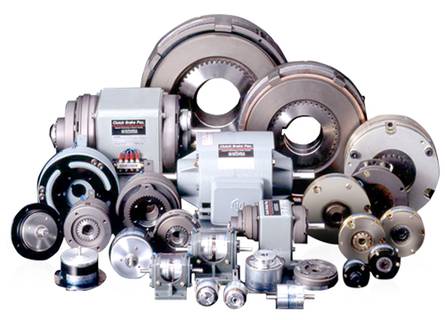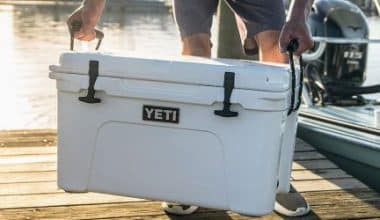One might wonder if there are certain types of people who buy industrial goods or if those who buy them fall into a certain demographic category. But wouldn’t those who purchase goods be considered buyers in and of themselves? Reading this post will perhaps assist you in gaining a deeper understanding of the topic at hand. As you become more familiar with the term “industrial goods,” its examples of industrial products, as well as the difference between consumer goods and industrial goods, all of which are embedded in this post, you’ll gradually get a hang of all that it entails.
Overview
Items purchased for use in a company are known as industrial goods. Again, industrial things are goods that are designed for use by a business, such as a company or a shopkeeper, rather than for personal use. They consist of machines, production plants, natural resources, and any other goods or commodity that is used by industries or businesses. They are resources or materials used in the production or making of other products.
What Are Industrial Goods?
This refers to raw materials or resources used in the production of other goods, usually known as consumer goods. They are classified into two categories, which are: support goods and production goods. The latter are industrial goods such as machines. For instance, a power generator supports or aids in the production of consumer goods and is not particularly a production good. On the other hand, production goods are those which have to do with parts, natural resources, or materials such as iron, etc.
Classification and Examples of Industrial Goods
Below are some classifications of industrial goods as well as examples.
Raw materials: resources such as
- Iron
- Crude oil
- Cotton
- Wheat
- Ethanol
- Timber products
- Rubber
- Coal & gas as well as
- Minerals are all included.
Machinery and parts
- Sewing machines
- Textile warping machines.
- Fastening tools such as screws, nuts, and bolts.
Operating supplies
- Glassware
- Linens
- Utensils and
- Dishware.
Services
- Maintenance
- Cleaning, and
- Repair of all types of equipment.
Characteristics and Features of Industrial Goods
The following are basic characteristics of industrial goods; more like of a couple of features to help you identify them.
#1. Availability of Limited Buyers:
There are only a certain number of people who can buy this. These buyers are in a specified or particular area. Consumers can’t possibly buy industrial items unless they are using them for production or to process raw materials into finished goods for the public at large. Once a raw material is put to use in the creation of a finished product, it is an industrial good.
#2. Industrial Items Have a High Cost
The purchase price for industrial products is usually high. Therefore, making it accessible and affordable only for business firms, companies, or groups of people for the production of goods for consumers.
#3. Ability to Make Rational Purchases
Here, the buyer(s) would make logical purchasing decisions. They don’t allow sentiments or emotions to overrule their judgment in purchasing, which might be a factor for the consumer. For instance, the organization will engage in rational and technical consideration of the items it intends to purchase in the near future.
#4. Demand Is Subject To The Effects Of Other Factors
The requirements for industrial products come from somewhere else or from a different source, i.e., the demand for completed goods is a significant factor that determines or influences the demand for industrial items.
#5. Complications in the Product Development Process
Working with things from the manufacturing industry involves not only the appropriate education but also the appropriate training and essential experience. Individuals who possess both of these traits are the only ones who are qualified to handle industrial products. This is because industrial items often have a high grade of construction makeup.
#6. Large Financial Investment Requirement
Those who are in need of industrial items often spend a significant amount of money purchasing them. The majority of businesses that create industrial items make revenue from the sale of stock and dentures, in addition to taking on loans from various financial institutions.
#7. The Reputation of an Industrial Products Dealer Is Critical.
This is a prior requirement, a direct contrast to the goal of street vendors, who go out of their way to make a profit as quickly as possible. Because of the very nature of industrial suppliers, it is difficult to have any doubts about their dependability and trustworthiness.
#8. They do their research on new equipment before making a purchase.
It is absolutely necessary for the success of industrial products that the buyer has a solid grasp of the machinery and tools that will be acquired to be used in the production process. Unlike customers of consumer goods, who usually do not have a clear idea of what it is that they want or need, consequently, it is conceivable for individuals to end up with unwanted things as a result of this. but this isn’t the case in the purchase of industrial goods.
Types of Industrial Buyers
An industrial buyer is in charge of selecting and procuring the products, services, and supplies that a firm will make use of. The job of a buyer goes beyond just buying goods. Also, know that the pricing and quality of these products and services should be determined in such a way that they meet the demands and expectations of the company and its customers.
As a buyer, you must be aware of current pricing patterns and how they may affect your organization.
The following three groups typically make up the industrial buyers:
- Component buyers: these buyers purchase parts of industrial goods. For example, a power generator comprises several different components, some of which are a battery charger, an alternator, a voltage regulator, and a fuel system.
- Resale-oriented buyers: these industrial buyers purchase goods for the purpose of resale.
- Buyers and installers of machinery: These buyers are not only competent but also install industrial goods in business firms, companies, and anywhere they require it.
The Difference Between Consumer and Industrial Goods
Getting a better understanding of the differences between consumer products and commercial goods will require that we first define consumer goods.
Commodities or goods produced and sold to meet the needs of a customer are known as consumer goods. This is also the final result after raw materials or its equivalent have passed through the production process. E.g clothing, food, soap, toilet tissue, etc.
The four main types of consumer products are:
- Goods for Sale: Consumers are more deliberate in their decisions when purchasing these goods, especially when it comes to appliances.
- Satisfactory or Comfort Goods: These are ready-made items or goods suitable for immediate consumption, such as pastries, milk, bread, etc.
- Products that aren’t sought after: These are goods or services rarely sought by consumers. Plots in a cemetery, life insurance, etc.
- Leisure goods: These are items or consumer goods for the general public that, and mostly, consist of more expensive things, such as yachts, accessories (jewelry, expensive wristwatches, etc.), wine, etc.
Now, the difference
First and foremost, consumer goods have a multitude of buyers, whereas industrial goods have a few buyers.
Secondly, industrial goods are mostly raw materials or their equivalent used by a business or company in order to produce or manufacture finished goods, while consumer goods are the final products or finished goods ready for use. In contrast to industrial products, the need for consumer products is immediate.
Furthermore, the demand for consumer goods determines the demand for industrial goods; e.g., the demand for rice will determine the demand for rice mills. On the other hand, consumption-related commodities have an independent demand since they’re sought for their final use.
Consumers, in contrast to industrial buyers, are more likely to base their purchasing decisions on their feelings and emotions, whereas industrial buyers are more likely to be influenced by reason and technology when doing so.
Also, outside forces can sway the decisions of consumers as they are more sensitive or vulnerable and may not have a strong understanding of the products they buy. Industrial purchasers, on the other hand, are aware of the nature of the product they are purchasing as well as how it functions.
Moving on, the demand for consumer goods is high while that for industrial goods is low.
Lastly, before purchasing or obtaining a relatively expensive industrial good, proper planning is necessary because of its very high cost. An individual may typically afford to purchase consumer goods without making any advance preparations.
Further Examples of Industrial Goods
We are going to list the various types of industrial goods:
- Iron
- Crude oil
- Cotton
- Wheat
- Ethanol
- Timber products
- Rubber
- Coal & gas
- Mineral
- Sewing machines
- Textile warping machines
- Fastening tools such as screws, nuts, bolts
- Glassware
- Linens
- Utensils and
- Dishware
- Maintenance
- Cleaning, and
- Repair of all types of equipment.
There are many more examples of industrial goods than those mentioned here.
How to Negotiate with Industrial Buyers?
The Request for Information (RFI) phase may be the final step in the B2B purchasing cycle, but it also marks the start of a new one.
What is Industrial selling?
Industrial sales is the sale of goods and tools used in factories and other manufacturing facilities. Many industrial goods are sold in big quantities at exorbitant prices. Industrial sales would include, for example, the sale of aviation parts and equipment.
What Are Industrial Products
Industrial goods are those that are used to make consumer goods from raw materials. A few examples are raw materials, tools, and machines.
Conclusion
I believe that I have successfully conveyed to you the meaning of the term “industrial good,” and I am confident that you are now able to differentiate between “consumer products” and “industrial goods” with some examples without batting an eye.
Industrial Goods FAQs
What are examples of industrial goods?
Iron
crude oil
cotton
wheat
ethanol
timber products
rubber
What are the classifications of industrial goods?
Industrial goods are categorized into Raw materials, Machinery & parts, Operating supplies, and services.
What are the many forms of buyers for industrial goods that we have?
Component buyers, Resale-oriented buyers, and Buyers & installers of machinery.
What is the major difference between consumer goods and industrial goods?
Consumer goods are the final products or finished items ready to be used, whereas industrial goods are raw materials needed to make finished goods. Consumer goods are needed immediately, unlike industrial goods.






